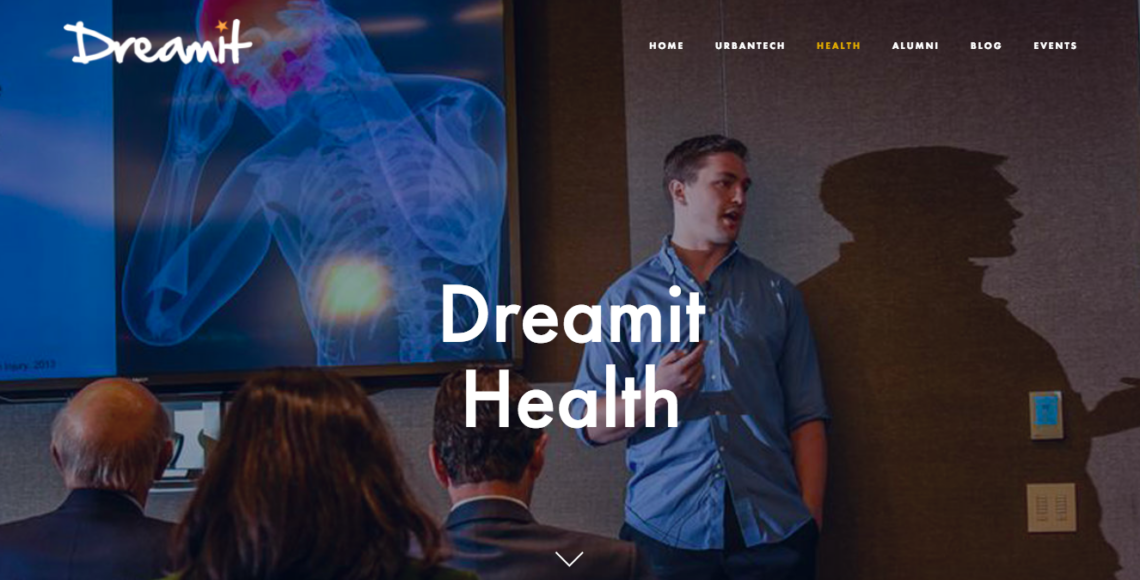The Three Dimensions of Pain (Points)
CREtech Blog

Guest Post by Andrew Ackerman, Managing Director, UrbanTech at Dreamit Ventures
"You need to sell painkillers, not vitamins."
I'm sure you've heard that one before. Vitamins are nice-to-have; painkillers are must-haves. Vitamins are hard to sell; painkillers are (relatively) easy to sell.
But have you ever really stopped to consider what pain is? It's not as simple as it sounds. In fact, there are at least three dimensions of pain you should understand.
The first dimension is intensity. Is it a hangnail or did you just smash your thumb with the hammer? Because fixing a hangnail is never going to make your customers' top 5 priority list. And given how time-starved we all are and how many excruciating problems we might have, most of us will never make it to item #6.
Most home automation solutions I see fall into this bucket. Turning your bedroom lights off from your office just isn't a pain point for most people. The same goes for adaptive lighting solutions that vary brightness and color to fit our circadian rhythms better. While the health benefits are real, for most of us, a cup of coffee in the morning and manually turning down the dimmer at night seem to do the trick just fine.
One of the reasons Twist is so compelling is that it hijacks a real pain point with its wireless speaker embedded light bulbs. Wireless speakers rarely are genuinely wireless - you still need electricity - but Twist solves that problem by screwing right into a light fixture and gives you healthy lightning and the backbone of a home automation system as the cherry on top.
The second dimension of pain is prevalence. How widespread is this pain point? Many founders I meet are passionate about the problems they solve because they lived it themselves. This means they are intimately close to their customers... except when they are the outlier. If the pain isn't shared widely, your market size deflates like a leaky balloon.
Find-a-roommate apps generally fall into this bucket. For young founders in cities like New York & San Francisco, this can be a real problem but it's irrelevant to married couples and in most cities where the cost of living makes renting your own place affordable. Plus, most singles have friends so finding a compatible stranger isn't necessary. ** It is a testament to how valuable intent to move data is that these apps get any attention despite the limited prevalence of the pain point.
** I wonder if founders who gravitate to these kinds of apps tend to be less socially connected?
Most of the civic engagement solutions I see also fall short on this axis. The founders are often very engaged in their local communities and don't want to miss out on pubic hearings about zoning, municipal services, etc. Most of us just don't care. The vast majority of citizens cannot even be bothered to vote in local elections.
What made PublicStuff and New York City's 311 call-in service (now an app as well) successful was that they found local issuers that we all actually care about - fixing the pothole on my block, seeing if I can leave my car where it is because alternate side of the street parking is suspended due to some holiday I'd never heard of (but now suddenly love). These are prevalent civic problems.
The third dimension of pain is frequency. The classic edtech example is finding the right college. A near universal, massively intense pain point with lifelong repercussions... but it only happens once in a lifetime.
In real estate, the equivalent is services that make buying or selling your home more efficient or that help you get a better price. Selling a home is incredibly stressful and one of the largest financial transactions in most people's lives, this is an 8 or 9 on prevalence and takes intensity to 11 but it only happens a few times in your life. The implication is that finding the customer will either be difficult, expensive, or both. This is why real estate brokers can pay over $100 per click to Zillow for leads on clients in prime zip codes.
So if your startup fails on frequency, you'd better have creative, scalable ways to acquire customers or ways to monetize those customers so much better than your competition that you can afford to outbid them.
Ideally, your startup scores high on all three dimensions. At worst, you score very high on two and have a sound plan to get around the headwinds caused by the one you are missing. But if you don't, please do yourself a favor and go back to the drawing board. You'll be saving yourself a world of hurt.
Applications are now open for Dreamit Health and Dreamit UrbanTech. For more information please visit https://www.f6s.com/dreamit
Andrew is recovering consultant turned serial entrepreneur, startup mentor and angel investor. He is the Managing Director at Dreamit, currently in charge of the UrbanTech and Edtech accelerator programs. Andrew is also a contributing writer to Fortune, AlleyWatch, The 74 Million, et. al. Andrew has founded two companies and has a keen appreciation for how hard it is to build a successful startup, even under the best of circumstances. You can keep up with Andrew on his blog As Angels See It, Twitter, LinkedIn, and on AngelList.
*** Dreamit is accepting applications for our upcoming UrbanTech and Digital Health accelerator programs! More info on Dreamit.com
DON'T MISS OUR UPCOMING CRE // TECH EVENT IN NEW YORK ON DECEMBER 7TH! TICKETS ARE ON SALE NOW!
